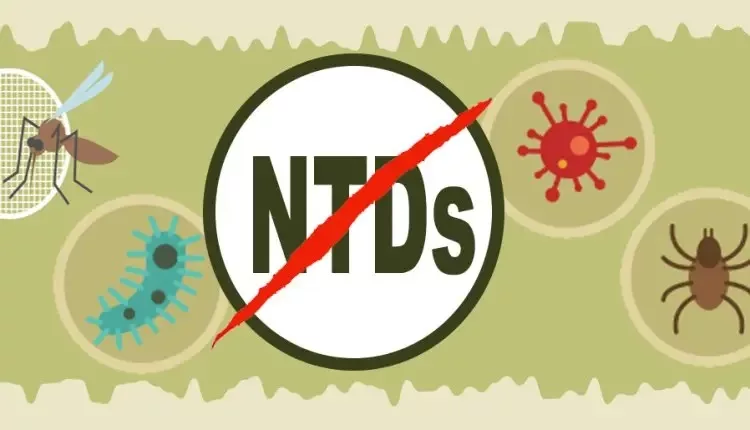Malaria and the Neglected Tropical Diseases (NTDs), co-occur and are both diseases of poverty that remains perpetuated, even as professor and consultant, medical Parasitologist at the College of Medicine of the University of Lagos, Lagos, Nigeria, Prof. Wellington Oyibo has called for urgent attention for this cycle of poverty-driven diseases to be broken.
NTDs are a group of conditions that affect more than a billion people who mostly live in marginalized, rural, poor urban areas and conflict zones. Although they are preventable and treatable, these diseases and their intricate interrelationships with poverty and ecological systems continue to cause devastating health, social and economic consequences. Majority of the NTDs occur in the chronic state where the affected persons hardly realise that they have a disease.
The most prominent NTDs in Nigeria are soil-transmitted helminthiases; Schistosomiasis (Intestinal & Urinary); Onchocerciasis; Human African Trypanosomiasis; Leishmaniasis; Lymphatic filariasis; Trachoma; Rabies; Buruli ulcer; Leprosy; Yaws (Endemic treponematoses) and snake bite, among others.
Oyibo told me that malaria and NTDs occur together in almost all states of the country. For instance, he disclosed that about 80 to 121 million Nigerians are estimated to be at risk of Lymphatic filariasis, requiring mass drug administration, adding that 30 million and 29 million Nigerians are at risk of Onchocerciasis and Schistosomiasis respectively.
The parasitologist however stated that these diseases will continue to persist if research in Nigeria are not directed to providing the much needed evidence to support the interventions, especially where there are threats of drug-resistance, poor or inadequate diagnostic tools, poor case-management practices, procurement and emerging virulence of the organisms, among others.
In addition to research, free and affordable access to NTD services should be available to everyone in need and the burden of NTDs should be fully addressed, including treatment, management of disability and doing away with stigma and social exclusion, he averred.
“Investments in NTDs is also an investment in reducing poverty and in allowing people and their families to lead healthier, more economically productive lives. Sustainable funding is key to relieving the burden of NTDs,” Oyibo stated.
He called on critical stakeholders to act now and act together to end NTDs, adding that “It is our collective responsibility to confront inequalities and put an end to these diseases that are entirely preventable.
On what the University of Lagos (UNILAG), is doing to tackle NTDs, Oyibo revealed that the vice chancellor of the institution, prof. Folasade Ogunsola has endorsed the Kigali Declaration for elimination of NTDs, adding that, “Through the Centre for Transdisciplinary research in Malaria and Neglected tropical diseases, UNILAG will use knowledge to combat NTDs which is critical to elimination as the institution deploy transdisciplinary research and multi-sectorial approaches in accelerating efforts to achieve the NTD elimination targets. Our research, development and implementation activities will no doubt support this process.”











